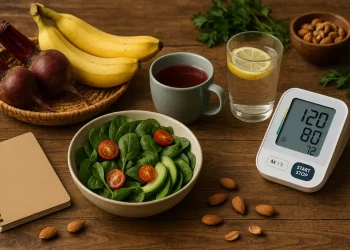IBD is an umbrella term primarily for two conditions, Crohn’s disease and ulcerative colitis, and it presents a unique set of challenges that extend far beyond typical digestive issues. For anyone on a wellness journey, understanding the multifaceted nature of IBD is key to finding balance and relief.
*Disclaimer: This article is for educational purposes only and is not a substitute for professional medical advice. Please consult a qualified doctor for personalized guidance.*
What is Inflammatory Bowel Disease (IBD)?
IBD is a chronic condition that involves inflammation of the gastrointestinal (GI) tract. While Crohn’s disease and ulcerative colitis share many symptoms, they are considered distinct conditions. Crohn’s disease may involve inflammation in different parts of the digestive tract and can affect multiple layers of the bowel wall, often in a patchy pattern. Ulcerative colitis, on the other hand, is typically limited to the large intestine (colon and rectum) and generally affects the innermost lining in a continuous stretch. The exact cause of IBD is not fully understood, but researchers suggest it may involve a mix of genetic factors, an overactive immune response, and environmental influences.
The Role of Diet in Managing IBD Symptoms
While there is no single “IBD diet,” dietary adjustments may help some people manage symptoms, and it is best to work with a gastroenterologist or a registered dietitian to personalize a plan. The goal is to identify and avoid foods that may trigger symptoms or discomfort for you. Common triggers can include high-fiber foods (especially during a flare-up), spicy foods, dairy, and fatty or fried foods. A food diary can be a valuable tool to help you pinpoint your personal triggers. Working with a registered dietitian specializing in IBD can also provide a personalized nutrition plan to ensure you’re getting essential nutrients without aggravating your symptoms.
The Mind-Body Connection: The Impact of Stress on IBD
While stress doesn’t cause IBD, it can play a significant role in symptom severity and the frequency of flare-ups. The gut and the brain are intimately connected through a complex network of nerves and hormones. Stress may worsen symptoms for some people by influencing gut-brain pathways and digestive motility.
Incorporating stress management techniques into your routine can be a helpful way to support overall gut health. Practices such as mindfulness meditation, gentle yoga, and deep breathing exercises can help calm your nervous system. Even a short walk in nature or engaging in a hobby you love can make a big difference. For more insights on the link between stress and IBD, you can refer to information from trusted health institutions like the Mayo Clinic.
Combatting IBD-Related Fatigue
One of the most debilitating and pervasive symptoms of IBD is fatigue. It’s more than just feeling tired; it’s a profound exhaustion that isn’t relieved by rest. This fatigue may stem from several factors, including chronic inflammation, nutrient deficiencies from malabsorption, anemia, or medication side effects.
Managing this fatigue is an important part of living with IBD. Prioritizing rest can be important, even when you feel busy. Gentle, low-impact exercise like walking can help boost energy levels without overtaxing your body. It’s a good idea to tell your doctor about the severity of your fatigue, since it could signal a flare or an issue such as anemia that needs attention. The Crohn’s & Colitis Foundation provides comprehensive resources on how to manage this often-overlooked symptom.
Unraveling a Surprising Symptom: The Link Between IBD and Constipation
When we think of IBD, we often associate it with diarrhea. However, a less-discussed but significant symptom is chronic constipation. This can be particularly confusing and frustrating for those with Crohn’s or ulcerative colitis.
Constipation in IBD can be caused by several factors. Inflammation in the large intestine may narrow the passage, which can make it difficult for stool to pass. Additionally, some IBD medications, changes in diet (such as reducing fiber), and dehydration from chronic diarrhea can contribute to constipation.
This counterintuitive symptom shows how complex these conditions can be. If you’re experiencing this, talk with your doctor about management options that won’t aggravate inflammation. To learn more about this connection and find helpful strategies for relief, you can read about how ulcerative colitis and chronic constipation are related.
Conclusion
Living with IBD is a journey of understanding and adapting. As we’ve explored, managing this condition effectively goes beyond just medical treatment. It requires a holistic approach that considers diet, stress, and lifestyle. By learning to identify your personal triggers, embracing stress-reducing practices, and actively addressing symptoms like fatigue and constipation, you can take control of your wellness. This journey is about empowerment—arming yourself with knowledge and building a proactive, personalized strategy that helps you not just cope, but truly thrive.
Disclaimer
This article provides general educational information about Inflammatory Bowel Disease (IBD), including Crohn’s disease and ulcerative colitis. It is not medical advice, diagnosis, or treatment, and should not be relied upon as a substitute for consultation with a Registered Medical Practitioner (RMP), gastroenterologist, or licensed healthcare provider.
We are not doctors or licensed medical advisors. This article is intended for general educational purposes only. Individual experiences with IBD vary, and what may help one person may not be appropriate for another. Always consult your healthcare provider before making any changes to medication, diet, or lifestyle.
Any references to organizations (such as the Mayo Clinic or the Crohn’s & Colitis Foundation) are provided for context and awareness only. WellHealthOrganic.com does not endorse, verify, or guarantee the accuracy, safety, or effectiveness of any treatment, product, service, or external resource mentioned. External links are for informational purposes only; we do not recommend or endorse outside websites.
All images used in this article are for illustrative reference only. They do not depict real patients, providers, or outcomes.
By reading or acting upon this article, you agree that all health-related decisions are your sole responsibility, and WellHealthOrganic.com shall not be held liable for any consequences, loss, or harm arising from its use.
If you are experiencing new or worsening symptoms, severe abdominal pain, bleeding, dehydration, or signs of a flare, please seek immediate medical care.



















